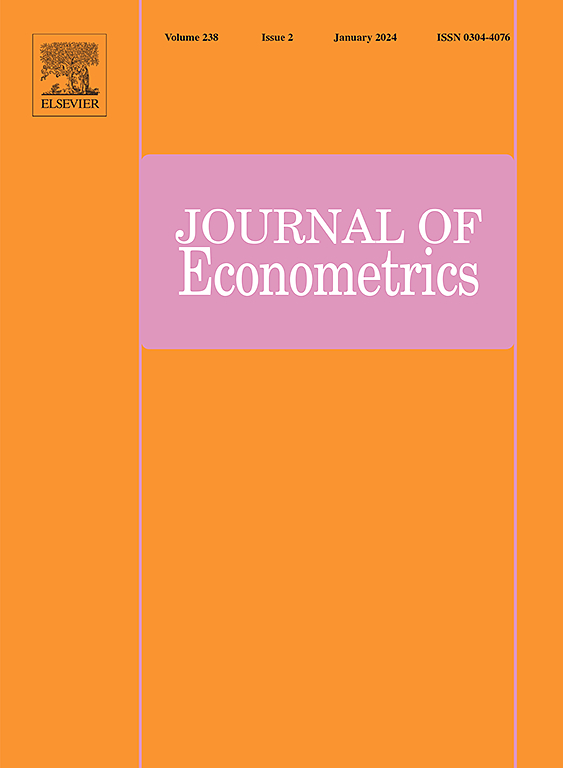Simple subvector inference on sharp identified set in affine models
IF 9.9
3区 经济学
Q1 ECONOMICS
引用次数: 0
Abstract
This paper studies a regularized support function estimator for bounds on components of the parameter vector in the case in which the identified set is a polygon. The proposed regularized estimator has three important properties: (i) it has a uniform asymptotic Gaussian limit in the presence of flat faces in the absence of redundant (or overidentifying) constraints (or vice versa); (ii) the bias from regularization does not enter the first-order limiting distribution; (iii) the estimator remains consistent for sharp (non-enlarged) identified set for the individual components even in the non-regular case. These properties are used to construct uniformly valid confidence sets for an element of a parameter vector that is partially identified by affine moment equality and inequality conditions. The proposed confidence sets can be computed as a solution to a small number of linear and convex quadratic programs, leading to a substantial decrease in computation time and guarantees a global optimum. As a result, the method provides a uniformly valid inference in applications in which the dimension of the parameter space, , and the number of inequalities, , were previously computationally unfeasible (). The proposed approach can be extended to construct confidence sets for intersection bounds, to construct joint polygon-shaped confidence sets for multiple components of , and to find the set of solutions to a linear program. Inference for coefficients in the linear IV regression model with an interval outcome is used as an illustrative example.
仿射模型中尖锐识别集的简单子向量推理
本文研究了识别集为多边形时参数向量各分量界的正则化支持函数估计。所提出的正则化估计量具有三个重要性质:(i)在没有冗余(或过度识别)约束的情况下,在平面存在下具有一致的渐近高斯极限(反之亦然);(ii)正则化的偏差不进入一阶极限分布;(iii)即使在不规则情况下,对于单个分量的尖锐(非放大)识别集,估计量也保持一致。这些性质用于为参数向量θ∈Rd的元素θ1构造一致有效的置信集,该参数向量θ∈Rd部分由仿射矩等式和不等式条件标识。所提出的置信集可以作为少数线性和凸二次规划的解来计算,从而大大减少了计算时间并保证了全局最优。因此,在参数空间的维数d和不等式的数量k以前在计算上是不可行的(d,k=100)的应用中,该方法提供了一致有效的推理。该方法可推广到构造相交界的置信集,构造θ的多个分量的联合多边形形置信集,以及求线性规划的解集。本文以具有区间结果的线性IV回归模型中的系数推断为例进行了说明。
本文章由计算机程序翻译,如有差异,请以英文原文为准。
求助全文
约1分钟内获得全文
求助全文
来源期刊

Journal of Econometrics
社会科学-数学跨学科应用
CiteScore
8.60
自引率
1.60%
发文量
220
审稿时长
3-8 weeks
期刊介绍:
The Journal of Econometrics serves as an outlet for important, high quality, new research in both theoretical and applied econometrics. The scope of the Journal includes papers dealing with identification, estimation, testing, decision, and prediction issues encountered in economic research. Classical Bayesian statistics, and machine learning methods, are decidedly within the range of the Journal''s interests. The Annals of Econometrics is a supplement to the Journal of Econometrics.
 求助内容:
求助内容: 应助结果提醒方式:
应助结果提醒方式:


